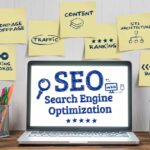A pharmaceutical consultant offers specialized expertise to businesses in the healthcare and pharmaceutical industries, helping them navigate complex regulations, optimize processes, and improve product development. Their role bridges the gap between scientific knowledge and business strategy, ensuring companies remain compliant and competitive.
They provide critical guidance on regulatory compliance, market access, clinical development, and manufacturing efficiency to accelerate product success. By working closely with pharmaceutical companies, consultants identify challenges and implement tailored solutions that save time and reduce costs.
Pharmaceutical consultants bring a unique combination of industry experience and technical knowledge, making them valuable partners for companies aiming to innovate and grow. Their insights can significantly impact the outcome of drug development and commercialization efforts.
Role of a Pharmaceutical Consultant
A pharmaceutical consultant provides specialized expertise to improve drug development, regulatory compliance, and market access. Their work spans project management, clinical evaluation, and strategic planning for pharmaceutical companies.
Key Responsibilities
Pharmaceutical consultants advise on clinical trials, ensuring protocols meet regulatory standards. They support drug formulation and manufacturing processes to comply with Good Manufacturing Practices (GMP). Consultants also conduct market analysis to guide product positioning and pricing strategies.
They prepare documentation for regulatory submissions, including Investigational New Drug (IND) applications and New Drug Applications (NDA). Risk assessment and mitigation planning are key tasks to identify potential issues early. Additionally, they may train company staff on updated regulations and industry best practices.
Skills and Qualifications
Strong knowledge of pharmacology, chemistry, and biotechnology is essential. Consultants typically hold advanced degrees such as a PharmD, MS, or PhD in pharmaceutical sciences or related fields. Regulatory knowledge, including FDA, EMA, and ICH guidelines, is critical.
Project management and analytical skills help manage complex timelines and data interpretation. Effective communication enables clear reporting to clients and regulatory bodies. Experience in clinical research, drug development, or quality assurance strengthens a consultant’s qualifications.
Industry Sectors Served
Pharmaceutical consultants work across sectors like biotechnology, generic and branded drug manufacturers, and contract research organizations (CROs). They also assist medical device companies with drug-device combination products.
Their expertise supports areas such as clinical trials, pharmacovigilance, regulatory affairs, and commercial strategy. Consultants may collaborate with academic institutions and government agencies on research and policy development. This breadth allows them to address diverse challenges within the pharmaceutical landscape.
Pharmaceutical Consulting Services
Pharmaceutical consultants offer specialized expertise across multiple critical areas. Their services help companies meet legal requirements, streamline drug development, and optimize strategies for entering competitive markets.
Regulatory Compliance
Consultants guide companies through complex regulatory frameworks set by agencies like the FDA, EMA, and other global bodies. They assist with preparing submission documents, ensuring adherence to Good Manufacturing Practices (GMP), and managing audit responses.
This expertise minimizes risks of delays or rejections in drug approval processes. Consultants also stay current on evolving regulations, helping clients maintain compliance throughout the product lifecycle. Their role often includes training internal teams on regulatory requirements to avoid costly errors.
Drug Development Support
Pharmaceutical consultants provide targeted support during preclinical and clinical trial phases. They help design study protocols, select appropriate endpoints, and ensure data collection meets regulatory standards.
They assist in risk assessment, identifying potential development obstacles early. Consultants also coordinate with contract research organizations (CROs) and analyze trial outcomes to inform further development decisions. Their involvement can accelerate timelines while maintaining scientific integrity.
Market Access Strategies
Consultants develop plans to secure reimbursement and optimize product positioning in diverse healthcare systems. They analyze payer requirements, health technology assessments (HTAs), and pricing regulations to inform market entry strategies.
They also advise on pricing models, stakeholder engagement, and competitive landscape analysis. This targeted approach increases the likelihood of favorable market access and maximizes product revenue potential. Effective strategies integrate real-world evidence and health economics data to support reimbursement discussions.


